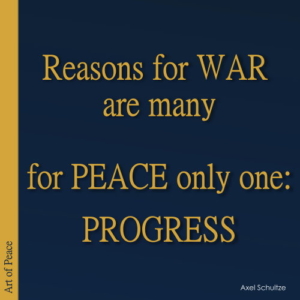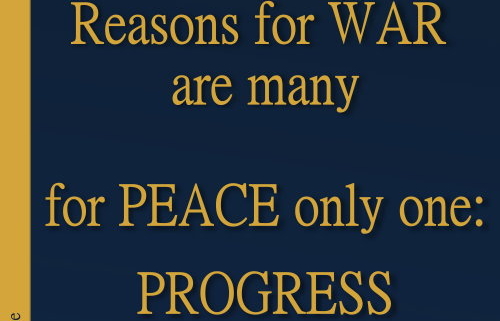We live only about 80 years after the end of WWII. In a generation of people who have no sense, what such a war actually means. Moreover, there is no interest in studying how it started and its terrible ending. And then, realizing that talking about it would be possible, but not good. Worst, making comparisons with today’s world could be interpreted as a crime, and so they dismiss anything political. Therefore, I share an interesting assessment from Hermann Göring, one of the primary player in WWII, in an interview with Gustave Gilbert
Hermann Göring to Gustave Gilbert (April 18, 1946)
“Why, of course, the people don’t want war. Why would some poor slob on a farm want to risk his life in a war when the best he can get out of it is to come back to his farm in one piece?
Naturally, the common people don’t want war; neither in Russia, nor in England, nor for that matter in Germany.
That is understood. But, after all, it is the leaders of the country who determine the policy, and it is always a simple matter to drag the people along, whether it is a democracy, or a fascist dictatorship, or a parliament, or a communist dictatorship.Voice or no voice, the people can always be brought to the bidding of the leaders.
That is easy.
All you have to do is tell them they are being attacked, and denounce the pacifists for lack of patriotism and exposing the country to danger.
It works the same way in any country.”
— Gustave M. Gilbert, “Nuremberg Diary”, 1947, p. 278.
A lesson I learned from my dad at the age of 10, in 1963: The risk of missing “the point of no return” is to ignore the early signals. They come in steps, and all those steps limit your freedom in a minimal dosage.
1) Media Control
The war instigating group (not necessarily a government) ensures that the media is unified in their aggressive propaganda development, and every publisher and every media outlet says the same story, word by word. Without media control, war would not be possible. Governments would be turned down.
2) War Propaganda
The propaganda textbook must declare one country to be the dangerous and bad party. And when you want to own that country later on and make the people be freed, you make the leaders a dictator, terrorist, or whatever is bad. You constantly hear about that bad guy who started a war, whether he did or not, kills and suppresses people, and whatever else one can come up with. The population needs to fear being attacked (see Göring statement above) to fear being attacked more than being at war. Then war can start.
3) In today’s world
While in today’s world, this is all more complex. Multidimensional information channels find ways to argue over the truth of all the mass media communication. Conspiracy theories explode, and nobody can trust anybody any longer. That’s bad – isn’t it? Well – maybe not. At no time in our civilized society should we have trusted homogeneous information. We didn’t even know what was going on. Only centuries later did historians uncover the truth through forensic research. Don’t trust is not distrust. Just trust what makes total sense to you and research as much as you can. It’s not a waste of time but a great learning experience.
4) Destabilization
Destabilize the country so people feel uncomfortable and look for an end to it. But the number of intelligent people is constantly growing. Also, destabilization is quickly recognized as one of those tricks and can be argued and debated. This is the time when some of the country’s top minds leave.
5) Law changes
So, war propaganda and destabilization are no longer as efficient as they were. War drivers must do more for their countries to get them into war. Changing some of the fundamental laws like property-related insurance, special versions for free speech, and more. At this point, even more of the top minds leave the country. The number of intelligent counterattacks diminishes, and the number of ignorant individuals remaining in the country increases dramatically.
External Support
At this stage, a country is no longer under its own control and can only be saved by a strong third-party country to prevent war. A single country is much easier to save than a nation bound into an alliance that may be externally controlled without knowing.


